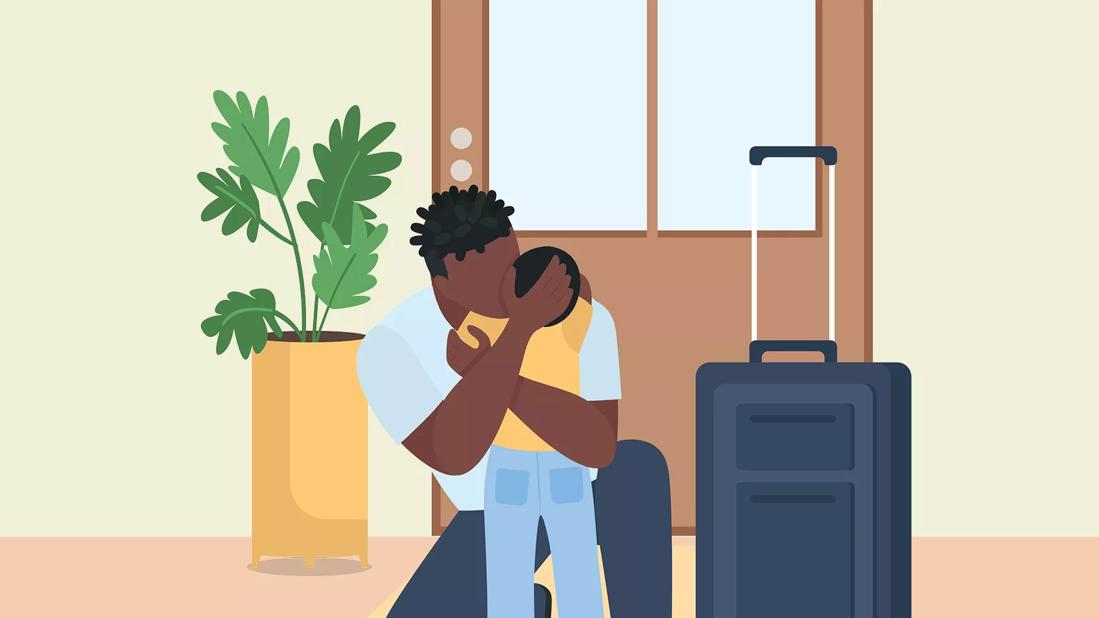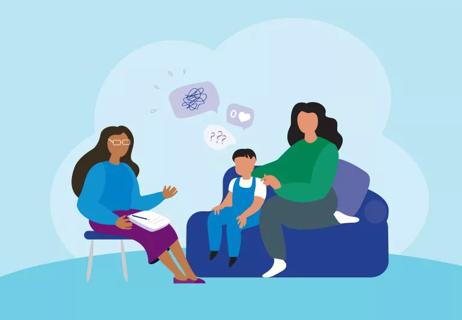Tips from a pediatrician to help your child adjust

Divorce can end some unhappy, unhealthy unions, and in the end, can become the best solution for a struggling family. But if you’re a parent going through it, you’re probably thinking about more than just yourself. If you stay up at night wondering how your children are affected — you’re not alone. There are ways to make this familial transition a bit easier for everyone.
Advertisement
Cleveland Clinic is a non-profit academic medical center. Advertising on our site helps support our mission. We do not endorse non-Cleveland Clinic products or services. Policy
Pediatrician Heather Sever, DO, says that divorce and separation can impact children at any age. “When parents are going through difficult times, children perceive that, regardless of their age. So while kids may express their stresses in different ways at different ages, it’s important for parents to be as open and honest as possible, even with difficult situations,” she says.
To be able to guide your child through this major life event, you must first understand your child’s feelings and then, equip yourself with the right tools for coping. Dr. Sever shares tips, below.
For children, divorce may be a very traumatic and overwhelming experience. Some children blame themselves for the breakup of a marriage and experience feelings of guilt.
Others may act out, or academic performance may decline. When a child experiences conflict, it creates anxiety and cognitive dissonance in them, often causing them to align with one parent over another to ease their discomfort or turn to outside, unhealthy outlets to express their feelings.
Depending on the child’s age, they may experience confusion (common in younger children), anger (common in teenagers), worry and guilt. Each situation is unique.
Advertisement
“The good news for parents is that it is possible to reduce these psychological effects,” says Dr. Sever.
Here are ten things you can do to help your child navigate this difficult time.
If you are interested in considering professional help, talk with your child’s pediatrician about getting a referral to see a counselor. This will help ensure their social, emotional and spiritual well-being.
Advertisement
Learn more about our editorial process.
Advertisement

A glass child is the sibling of someone with special needs — often seen as the easy one, but carrying invisible burdens

Appetite changes, social isolation, repetitive behaviors and more may indicate that your child is struggling

Golden children often deal with perfectionism, low self-esteem and strained relationships as adults

Think of this behavior as a role reversal between parent and child — when a child takes on responsibility that’s not developmentally appropriate for their age

Tantrums and meltdowns are normal, but you can help your child manage their bigger emotions

American teens are facing unprecedented rates of depression and suicide, but you can be there to support and help them

Unexplained injuries, mood changes and sudden isolation may be signs your child needs help

Be involved in your kid’s care, but be mindful of boundaries

Wearing a scarf, adjusting your outdoor activities and following your asthma treatment plan can help limit breathing problems

Your diet in the weeks, days and hours ahead of your race can power you to the finish line

When someone guilt trips you, they’re using emotionally manipulative behavior to try to get you to act a certain way